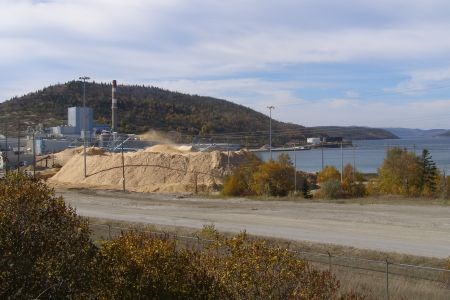There is new optimism in Marathon this week, following the creation of the Nawiinginokiima Forest Management Corporation, the first pilot project to be established under the province's overhauled forest tenure system.
Nawiinginokiima, which means “working together,” will serve as one of two pilots under the Local Forest Management Corporation (LFMC) model proposed by the Ontario government earlier this month. Set up as a community-driven Crown corporation, the Marathon pilot will manage the Big Pic, Nagagami and White River forests, with the direct participation of area municipalities, First Nations and industry.
The selection of Marathon for the first pilot initiative was welcome news to Darryl Skworchinski, Marathon's economic development officer, who lauded the decision as a boost to economic development.
While the operational details still have to be ironed out, “communities are going to have a lot more input into how fibre and resources are allocated and directed,” Skworchinski said. “I think that's important because, with that in mind, it's not going to be driven by profit, which is usually the centric for private enterprise; it's going to be driven by community sustainability and economic generation for local communities.”
The technical team implementing the corporation will meet next week to put together a business case and determine details such as financials, board structure and reporting framework.
While the province is aiming for an April 2013 start date, Skworchinski believes the corporation can be up and running before then.
“It will be a Crown corporation, but it's certainly nothing new for those of us in the business,” he said. “As long as we can navigate the bureaucratic process fairly efficiently, I think we'll be operational sooner rather than later.”
In the interim, the province will maintain the status quo, honouring forest resource licences, SFLs, and established business-to-business relationships, he added.
Marathon is continuing its discussions with Protocol Biomass out of Toronto, which has been eyeing the former Marathon Pulp mill site for a roaster for torrefied wood pellets. The company was in Marathon this week for talks with Northern Development Minister Michael Gravelle and the community's economic development committee board to discuss going forward.
Skworchinski said it's still their intention to secure fibre before the fall.
A community-driven management model has been a long-time vision of the communities of Marathon, Pic River and Manitouwadge, and Skworchinski believes their involvement in the corporation will help alleviate misconceptions about it, including that this configuration won't support industry.
The LFMC will offer long-term fibre commitments and will drive economic development, which will keep costs down and allow for a faster approval process – all benefits to business.
“Right now when you're trying to get a wood commitment, you're dealing with the Ontario government,” Skworchinski said. “In this case you're going to be dealing with a Crown agency with its own manager and its own board of directors, so it's going to be able to happen in a very expeditious type of manner.”
With five municipalities, three First Nations, and two industry partners working together toward a common goal, the corporation serves as an example for the overhaul of this type of government system, Skworchinski added.




